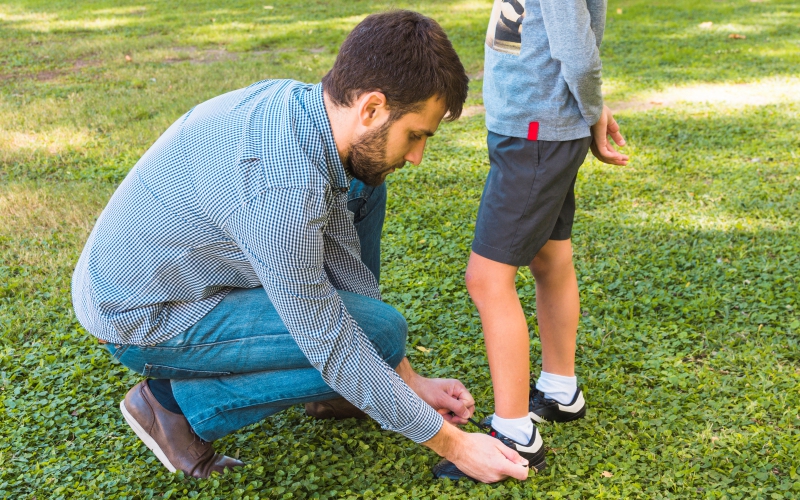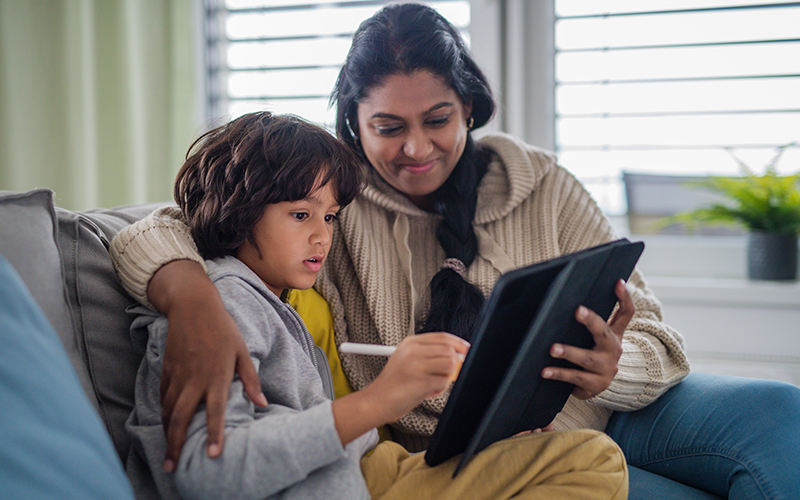Author: Dr.Amit Gupta MBBS, MD, KGMC, PGPN
Consultant: Paediatrician & Neonatologist Motherhood Hospital, Noida
Social skills and friendships play a crucial role in a child’s development and overall well-being. As parents, it’s essential to support and guide your child in building healthy relationships and nurturing social skills. In this blog, Dr. Amit Gupta, a Senior Consultant at Motherhood Hospital, shares valuable insights and practical tips on how you can foster social skills and friendships for your child.
Encourage Positive Communication
Effective communication is the foundation of healthy relationships. Dr. Amit Gupta recommends the following strategies to promote positive communication skills in your child:
Active Listening
Teach your child the importance of attentive listening when others are speaking. Encourage them to ask questions and respond thoughtfully.
Expressing Feelings
Help your child identify and express their emotions appropriately. Encourage open dialogue about feelings and provide guidance on how to communicate their needs.
Empathy and Perspective-Taking
Teach your child to understand and respect others’ perspectives. Encourage them to put themselves in someone else’s shoes to develop empathy.
Provide Opportunities for Social Interaction
Engaging your child in various social settings and activities can foster social skills and create opportunities for building friendships. Consider the following suggestions
Playdates
Arrange playdates with other children of similar age. These interactions allow your child to practice sharing, taking turns, and resolving conflicts.
Extracurricular Activities
Enroll your child in extracurricular activities, such as sports, arts, or clubs. These settings provide opportunities to interact with peers who share similar interests.
Community Events
Attend local community events or join parent-child groups to expose your child to diverse social environments and encourage interaction with other children.
Teach Problem-Solving and Conflict Resolution
Conflict is a natural part of relationships. Dr. Amit Gupta suggests teaching your child essential problem-solving and conflict resolution skills
Active Problem-Solving
Teach your child how to identify problems, brainstorm solutions, and evaluate their effectiveness. Encourage them to find mutually beneficial outcomes when conflicts arise.
Negotiation and Compromise
Guide your child in understanding the importance of negotiation and compromise in resolving conflicts. Help them find win-win solutions that consider the needs of all parties involved.
Assertiveness and Conflict Resolution
Teach your child to express their thoughts and needs assertively while respecting others. Encourage them to seek compromises and resolve conflicts through open and respectful communication
Be a Positive Role Model
Children often learn by observing their parents and caregivers. Dr. Amit Gupta emphasizes the importance of being a positive role model
Demonstrate Respect and Kindness
Model respectful and kind behavior in your interactions with others. Show empathy, active listening, and problem-solving skills
Teach Healthy Boundaries
Help your child understand the importance of personal boundaries and respecting the boundaries of others. Encourage them to communicate their boundaries effectively
Foster Inclusion
Encourage your child to include others and make everyone feel welcome. Teach them the value of diversity and acceptance
Support Emotional Intelligence
Emotional intelligence is vital in building and maintaining healthy relationships. Dr. Amit Gupta suggests the following strategies to support your child’s emotional intelligence:
Emotion Recognition
Help your child recognize and label emotions, both in themselves and others. Encourage discussions about different emotions and their causes.
Emotional Regulation
Teach your child strategies to manage and regulate their emotions effectively, such as deep breathing, counting to ten, or taking a break.
Problem-Solving and Coping Skills
Equip your child with problem-solving and coping skills to handle challenging social situations. Encourage them to seek support from trusted adults when needed.
Conclusion
Fostering social skills and friendships is a vital aspect of your child’s development. Dr. Amit Gupta emphasizes the importance of encouraging positive communication, providing social opportunities, teaching problem-solving and conflict resolution, being a positive role model, and supporting emotional intelligence. By incorporating these strategies into your parenting approach, you can help your child develop strong social skills, build meaningful relationships, and navigate the complexities of social interactions with confidence.
Remember, every child is unique, and the journey to developing social skills may vary. If you have concerns about your child’s social development or need further guidance, consult with a paediatrician or healthcare professional for personalized advice.
At Motherhood Hospitals, we have a team of experienced super specialists backed by the latest in infrastructure and facilities. We have the best Paediatricians in Noida that consists of a team of paediatric specialists that cater to all the needs of children, across age groups, and provide the best care for your child’s development.
Do take an appointment with the best child care hospital in Noida at a centre closest to you. Meet with our doctors who will carry out the required investigations, diagnose the issue and recommend the most appropriate treatment, enabling you to lead an active life.
If you wish to get in touch with Dr. Amit Gupta, please book your appointment here.


 Toll Free Number
Toll Free Number





















